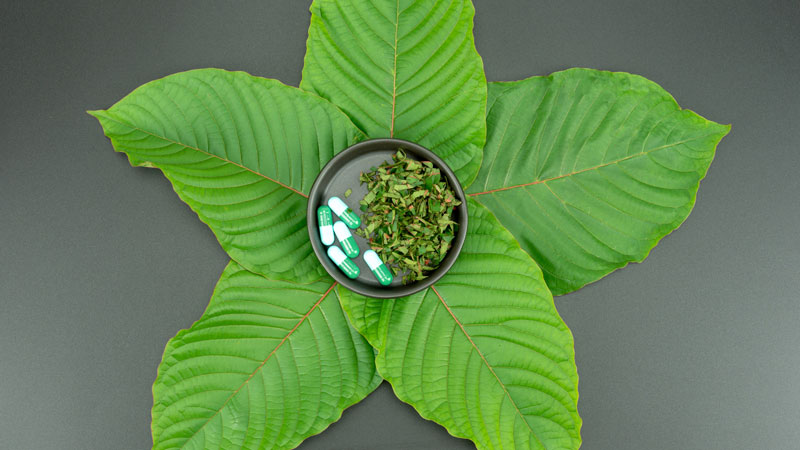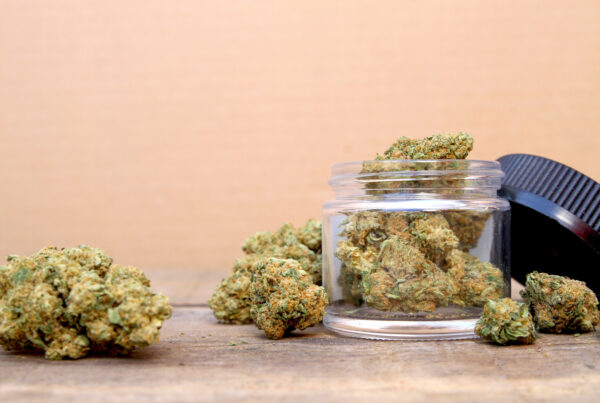Table of Contents
- What is Kratom Tea?
- Can Kratom Tea Interact With Other Medications Or Supplements?
- Does Kratom Tea Have Side Effects?
- Can Kratom Tea Cause Addiction?
- Is Kratom Tea Safe if You are Pregnant or Breastfeeding?
- Is Kratom Tea Safe For Children?
- Can Kratom Tea Affect the Liver?
- Can Kratom Tea Cause Respiratory Problems?
Key points:
- Kratom tea is made from dried leaves of the kratom tree
- The substance is naturally occurring, but not without potentially severe risks
- Kratom tea has the potential for addiction
- Links to liver injury and respiratory depression have been identified
Many people suffering from mental health conditions such as anxiety or depression dislike the idea of turning to pharmaceuticals to alleviate their symptoms, and sometimes look for a more natural method.
While Kratom has been used for centuries by some cultures[1], Western societies are now turning to the substance to treat a variety of ailments, and sometimes for recreational purposes.
Just because a substance is naturally occurring does not mean it comes without risks, especially for those who have a history of addiction or other mental or physical health concerns.
Here’s what you need to be aware of before you use kratom tea.
Its Time To Take Your Life Back
Contact UsWhat is Kratom Tea?
Kratom tea is made from the leaves of the Southeast Asian Mitragyna speciosa tree. Kratom leaves contain several active compounds which can have either sedative or stimulant effects, depending on the dosage and strain of the Kratom used.
To make kratom tea, the leaves are dried and then brewed in hot water. Herbs or flavors are sometimes added to add flavor or enhance the tea’s effects. Kratom tea is consumed either hot or cold, and its effects can last for several hours.
Kratom use is not illegal in the United States, however, it is controversial. The substance is not approved or regulated by the U.S. Food and Drug Administration and the drug may lead to several negative effects on mental and physical health.
Is Kratom Tea Safe?
There is debate surrounding the safety of kratom tea. While kratom tea is generally considered safe when used in moderation, there are potential negative side effects, including nausea, vomiting, dizziness, constipation, and respiratory depression, especially when taken in high doses. Additionally, kratom can lead to addiction.
Research on Kratom is limited. More studies must be conducted to understand the long-term effects on mental and physical health.
Kratom Tea: What are the Effects?
The effects of Kratom tea range from sedating to stimulating, depending on the dosage and strain. The stimulant strains of kratom include Maeng da Kratom and Thai Kratom and the strains with more sedative properties are Bali Kratom, Malay Kratom, Borneo Kratom, Indo Kratom.
While certain strains may be classified as either sedative or stimulant, the effects of Kratom may also vary based on factors such as dosage. Generally, higher dosage of kratom has sedative effects and lower doses of kratom have more stimulating effects[2].
For more information on the effects of different strains of kratom, see the chart below.
Kratom Strains Used in Tea: an Overview
| Strain | Effects | Potency | Duration | Potential Side Effects |
| Bali Kratom | Sedative | Moderate | 3-4 hours | Nausea, loss of appetite, constipation, dizziness |
| Maeng Da Kratom | Stimulant | Strong | 5-6 hours | Jittery feelings, agitation, rapid heartbeat, sweating |
| Thai Kratom | Stimulant | Moderate | 4-5 hours | Headaches, nausea, dry mouth, sweating |
| Malay Kratom | Sedative | Moderate | 3-4 hours | Drowsiness, blurred vision, nausea, vomiting |
| Borneo Kratom | Sedative | Strong | 4-5 hours | Dizziness, constipation, dry mouth, fatigue |
| Indo Kratom | Sedative | Moderate | 3-4 hours | Nausea, vomiting, constipation, loss of appetite |
Can Kratom Tea Interact With Other Medications Or Supplements?
Kratom tea may interact with other substances, especially those that affect the liver or central nervous system. Individuals using opioids, benzodiazepines, and antidepressants must exercise extreme caution when taking kratom tea, as the combination may increase the risk of respiratory depression.
If you are taking any medication or supplement, speak with your doctor before consuming kratom tea.
The effects of Kratom tea typically last between 3-6 hours. The duration of the effects depends on the dosage, strain of kratom used, and the individual’s body chemistry.
The effects of Kratom tea typically last between 3-6 hours. The duration of the effects depends on the dosage, strain of kratom used, and the individual’s body chemistry.
Does Kratom Tea Have Side Effects?

Kratom tea, although derived from a natural substance, is not without its risks. The drug has numerous potential side effects ranging from mild to severe, and some can even be life threatening.
Side effects of consuming kratom tea may include nausea, vomiting, dizziness, and bowel changes. In severe cases, kratom tea may cause respiratory depression. This risk increases as the dosage of kratom increases.
Long term effects on physical and mental health are not fully understood.
Can Kratom Tea Cause Addiction?
Kratom tea may cause addiction, especially if an individual consumes the substance regularly or in high dosages. Kratom contains properties that can interact with the brain’s opioid receptors, producing feelings of relaxation and euphoria. Continued use can lead to a physical dependence, withdrawal symptoms, and addiction.
We’ve answered more of your commonly asked question about kratom tea below:
Is Kratom Tea Safe if You are Pregnant or Breastfeeding?
It is generally not recommended that you consume kratom tea if you are pregnant or breastfeeding, as kratom may have potential negative effects on a developing fetus and can be passed to an infant through breast milk.
However, the safety of kratom tea for pregnant or breastfeeding women is not well-established.
Is Kratom Tea Safe For Children?
The effects of kratom tea on children has not been well-studied. However, due to its potential negative effects and addiction potential, kratom tea is not typically recommended for children.
Can Kratom Tea Affect the Liver?
Kratom has been linked to instances of acute liver injury[3]. Symptoms of this condition include fatigue, nausea, itchy skin(pruritus) and dark urine followed by yellowing of the skin, whites of the eyes, and mucous membranes (jaundice).
Can Kratom Tea Cause Respiratory Problems?
When taken in high doses, kratom may lead to respiratory distress such as shortness of breath or respiratory depression.
If you or someone you know has consumed kratom and is experiencing trouble breathing, seek emergency medical attention right away.
Frequently Asked Questions About Kratom Tea
Below are some of the most frequently asked questions regarding these two medications.
The Heights Treatment Editorial Guidelines
There is a vast amount of misinformation online especially as it relates to health & wellness. We have made it our mission at The Heights Treatment to provide accurate, medically sound content that has been medically reviewed by a doctorate level clinician so that you can trust the information contained within our website.





